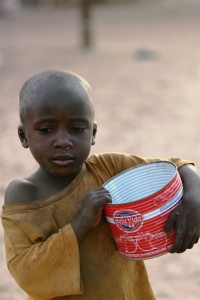
Who are They ?
Most of them come from Mauritinia, Niger, Gambia, Senegal, Mali, and Guinea. They are children, mainly boys, who are entrusted from a young age to a Koranic master by their parents. This master is commonly known as “a holy man.”
The holy man teaches them Islam at the Koranic school that he directs. If the children live far from school, then the young Talibanis reside there.
Freedom at a Price
There are many types of Koranic schools.
According to a UNICEF study, in the madaris modern Islam is taught and the school subjects are drawn from the public school curriculum. While in the daraas, the study of the Koran is done through strict discipline and traditional Islam. Whereas in the former there are school costs, in the daraas, learning is free. However, that freedom has a price: the children must perform various tasks for their Koranic master, and sometimes beg to obtain money for him. This practice is often associated with forced labour.
Becoming Talibani, the Parents’ Choice
There are multiple reasons why a child becomes Talibani. According to UNICEF, poverty can push certain families to entrust their child to a holy man. They may do this in order to have sufficient means to support themselves. In other cases, parents’ religious devotion influences their decision.
The proximity or remoteness of school infrastructure also plays a determining role: in certain villages, public schools are non-existent. Thus, parents have the choice of sending their child to public school in another city, often far away, or of placing them in a Koranic village school. Furthermore, the holy man, if he has a good reputation, can promise a radiant future for his disciples, which would far surpass that which they could ensure for themselves by attending a public school.
However, according to various non-governmental organizations, the practices of the holy men is sometimes contrary to the rights of the child: from forced labour to precarious living conditions in certain Koranic schools, the children may be confronted by multiples violations of their rights.

